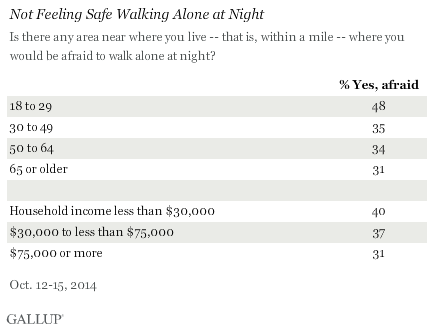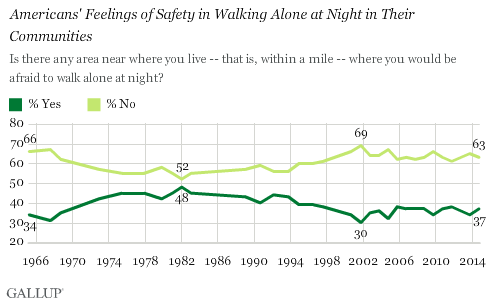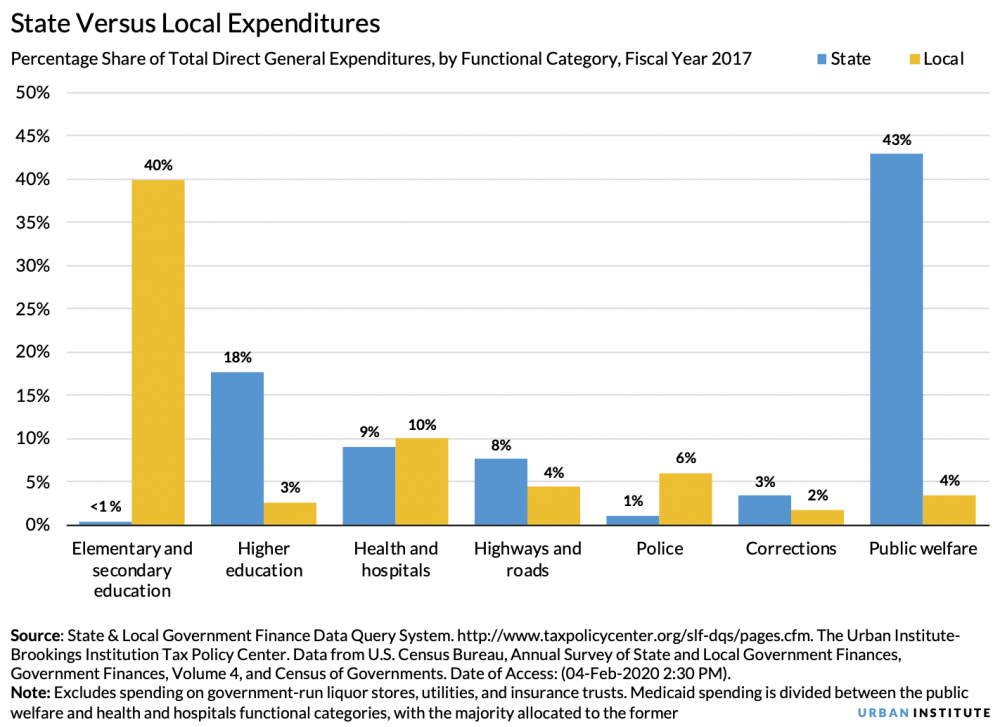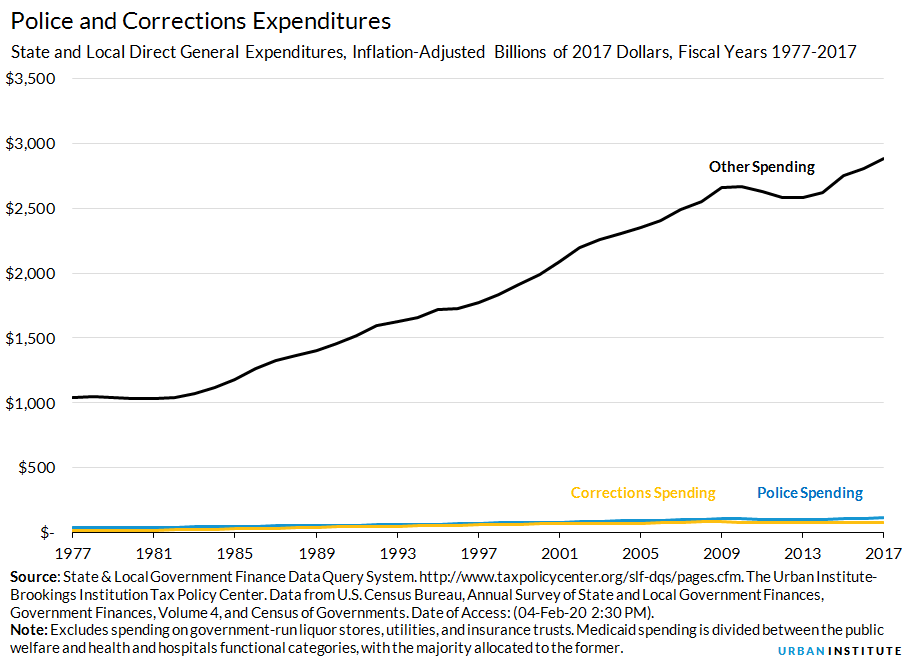-
Posts
750 -
Joined
-
Last visited
-
Days Won
6
Content Type
Profiles
Forums
Events
Everything posted by Alex_Krycek
-
"Tell me. Tell me what it is." LOL. Such a funny episode.
-
Any time a progressive policy is put in front of the American people, they overwhelmingly support it. Examples of Popular Progressive Policies: 1. Medicare For All (Universal Healthcare) polls at 69% support: https://thehill.com/hilltv/what-americas-thinking/494602-poll-69-percent-of-voters-support-medicare-for-all 2. 67% Support a Living Wage (15 USD per hour) https://www.pewresearch.org/fact-tank/2019/07/30/two-thirds-of-americans-favor-raising-federal-minimum-wage-to-15-an-hour/ 3. Green New Deal: https://www.theatlantic.com/science/archive/2019/06/green-new-deal-may-be-more-popular-carbon-tax/592201/ 4. Legalizing Marijuana Poll (two thirds support) https://www.pewresearch.org/fact-tank/2019/11/14/americans-support-marijuana-legalization/ 5. Free College - Poll 58% support (https://thehill.com/hilltv/rising/461106-majority-of-voters-support-free-college-eliminating-student-debt) Unfortunately, progressive policies are antithetical to the goals of corporate America, so they are usually subverted by Corporate Democrats, who serve Corporate interests rather than the American people.
-
Well, Sanders didn't run against a Republican, so we'll never know how he might have done. As a matter of fact, a real progressive has never run in a Presidential election for the Democrats (only in the primaries). That includes Obama, who was a centrist / moderate, not a progressive. There have been decent third party progressive candidates like Ralph Nader and Jill Stein, but it is exceedingly difficult for third parties to do well in America given how the system is designed. Could Biden have won areas like Atlanta, Detroit, or Philadelphia (which in turn helped him win those states (Georgia, Michigan, Pennsylvania) without massive turnout from progressive voters? I doubt it. Of course, moderates and conservatives helped Biden as well. This was more of an anti-Trump election rather than a pro-Biden election, meaning, the thing that united most people was their hatred of Trump, and not their support for any particular policy that Biden put forward. The conveniently philosophical slogan: "Battle for the Soul of Our Nation" encapsulates this perfectly. It doesn't mean anything concrete, and it doesn't have to. It simply means: "We're not crazy like Trump." Not a very high bar. Where do things go from here? The Corporate Democrats will keep pushing their Republican-lite messaging, chastising progressive candidates like the squad for "costing them elections". This is absurd really, as the squad won all their seats back easily, while centrist / republican lite Democrats experience defeat after defeat. Corporate Democrats will see Biden's election as a convenient mandate to return to business as usual - i.e. arguing why they can't do anything meaningful for the American people. Business as usual wasn't working before Trump. It's not going to work again now.
-
This is an excellent interview with AOC. https://www.theguardian.com/us-news/2020/nov/08/alexandria-ocasio-cortez-ends-truce-by-warning-incompetent-democratic-party She makes the obvious point that the Progressive vote won Biden the election.
-
I don't agree with this at all. I know a few Trump supporters. They were convinced it would be a "landslide" for Trump. In no way did they anticipate him losing. I'd say they are out of touch with reality if the genuinely thought it would be a landslide, but this was an extremely close election - perhaps you could say the same for the Democrats and the "blue wave" theory. This was by no means a repudiation of Trumpism. If anything, it reinforced it. More people voted for Trump this time than in 2016. They weren't planning on losing. Who will run next under the Trump brand? Ivanka? Don Jr? Trump again? The support is still there. If the corporate Democrats play their "meet in the middle" games of non-change, Trump 2.0 is waiting to happen. And next time it won't be some bumbling oaf who broadcasts his fascist takeover. Next time they might succeed.
-
I have been relieved at how effective the judiciary has been in neutralizing Trump's attempted illegality. Despite all the bluster and hot air from the bully pulpit, at the end of the day all Trump's actions have to go before a judge and must align with the law. Thank heavens for the courts.
-
For anyone who's been paying attention, the notion that Trump will voluntarily concede the election (even if he has been legitimately and resoundingly defeated) is undoubtedly not based in reality. Trump is not the type of person to graciously bow out. Trump will use any and all means at his disposal to retain power, and has already laid the groundwork via the bully pulpit to deny the authenticity of the election results: through his constant efforts in the media to undermine the legitimacy of mail in voting, the Republican efforts to limit access to in person voting, and their attempts to get mail in ballots thrown out on fabricated technicalities by the courts. Trump will not go quietly into that good night. If there's anything we should have learned about Trump, what he says, he means. "I think it's a terrible thing when ballots can be collected after an election. I think it's a terrible thing when states are allowed to tabulate ballots for a long period of time after the election is over." - Donald Trump https://www.axios.com/trump-claim-election-victory-ballots-97eb12b9-5e35-402f-9ea3-0ccfb47f613f.html Trump does not want every vote counted. Nothing could be more antithetical to democracy. Trump wants the superficial appearance of a victory and a nullification of the democratic process writ large to continue his exercise in selfish aggrandizement at the expense of the American people. Now, Van Jones has released a remarkable Ted talk that is both terrifying and accurate, describing in detail how Trump could simple refuse to concede (for whatever reason) and the entire democratic process would be wrested from the hands of the people. "For instance, did you know that under our constitution a presidential candidate could actually lose the popular vote, fail to get a majority in the electoral college, refuse to concede, manipulate hidden mechanisms in our government and still get sworn in as the president of the United States of America? That's a true fact. I know it sounds like some crazy "House of Cards" episode, and I wish it was, because then we could just change the channel, but I just described to you a real-world, real-life possibility that could occur this year, the year I'm talking, in 2020, or in some other year, if we don't fix some of these glitches in our system." - Van Jones This will not be business as usual...
-

Should Police Departments Be Given More Money?
Alex_Krycek replied to Alex_Krycek's topic in Politics
That's fine. You're free to interpret what you read any way you like. I've made an attempt to clarify already; you're not interested in that. C'est la vie. The survey I posted shows results from over 50 years of polling. Between 30-40% of Americans consistently reported that they don't feel safe walking in their own neighborhoods at night. To me that's conclusive enough. More hyperbole and exaggerations. My posts were about increasing funding / training for officers so they can more effectively deal with violence when confronted with it. Increasing discipline and training while under pressure through the use of martial arts training would be an effective safeguard against irrational behavior under pressure. There's also the issue of increased accountability, which we haven't addressed yet. Interesting. What is the general attitude towards the police in Turkey? Are they respected overall? How much do they make, specifically? Would you say their job is dangerous, as it is in some cities in the US, or less dangerous? -

Should Police Departments Be Given More Money?
Alex_Krycek replied to Alex_Krycek's topic in Politics
Neither, actually. That there is "outrage" is your subjective interpretation. It's easy to read into things when contextual cues such as tone of voice, body language, etc are not present. We're having a debate. That is all. -

Should Police Departments Be Given More Money?
Alex_Krycek replied to Alex_Krycek's topic in Politics
Not really. I provided supporting data to back up my original point. I'm not talking about racists. I'm referring to people of color, women, and young people who live in these communities. They are the ones calling for more effective police. They are the ones who feel unsafe. Is your nit-picking game of semantics that much better? And what do you know, those few criminals, when left unchecked, dominate and control those around them. -

Should Police Departments Be Given More Money?
Alex_Krycek replied to Alex_Krycek's topic in Politics
This poll shows that one third of Americans have felt unsafe in their own neighborhoods for over 50 years. The point about safety being a legitimate concern for a significant portion of Americans as well as the fact that there are extremely violent cities has been sufficiently made. This was a Gallup poll. I think we can safely rely on them to conduct a proper survey. And then after a decline in the 90s it fluctuates at between 30-35% until the present day. Not sure where you get the idea that I'm "fixated" on controlling people with force. Seems like more straw-manning on your part. If it were up to me we'd function like Sweden or Norway. However such a long term transition will take many years and crime is an exigency that exists now, and won't go away on its own. You continue to think that asking violent criminals nicely to "please stop what they're doing" is a realistic approach. That's an unrealistic assumption. So I suppose you're fine with the criminals controlling other people? Because that what will happen if the police aren't there to stop them. This notion espoused by you and the anarchist fellow that everything will magically solve itself if government goes away is extremely naive. The problem lies with people. Human beings are violent. Human beings seek to dominate and control others. If we had no police then criminals would immediately fill the power vacuum and form a mafiocracy, as they have in so many instances in the past and do in other nations with no stable government. Unless criminals are as polite as you assume and courteously acquiesce to your gentle admonitions. (But then again, they probably wouldn't be criminals if they did that, would they?) Now who's being hyperbolic? 🙄 -

Should Police Departments Be Given More Money?
Alex_Krycek replied to Alex_Krycek's topic in Politics
"What value it becomes safe"? Please clarify your question / statement. ---------- Here is a poll done in 2014 about how safe certain groups feel. Roughly a third of Americans feel unsafe walking in their own communities. Notably, 48% of young people (18 - 29) say there is an area within a mile of their residence that they feel unsafe walking at night. The study's conclusion: "While the percentage of Americans saying they do not feel safe walking alone within a mile of their home at night has remained steady over the past decade, there has been a considerable shift in Americans' views on this question over the past 30 years. While falling crime rates have not necessarily affected Americans' perceptions of crime on a national level, they have been felt in neighborhoods and communities across the country. Nonetheless, women are among the groups that feel the least safe, suggesting the benefits of falling crime rates have not been evenly felt by all. Other groups, such as the young and lower-income individuals, are also more likely to worry about their own safety." Source: https://news.gallup.com/poll/179558/not-feel-safe-walking-night-near-home.aspx -

Should Police Departments Be Given More Money?
Alex_Krycek replied to Alex_Krycek's topic in Politics
I did answer it. There are many communities where people are afraid to walk in their own neighborhoods, especially at night, due to a high frequency of robberies, murders, rapes, etc. You'd have to be fairly insulated not to understand this fact about the US. -

Should Police Departments Be Given More Money?
Alex_Krycek replied to Alex_Krycek's topic in Politics
Really? Tell that to the people who actually live in these communities. To you they're just statistics; to them they're a stark and urgent reality. I suggest you watch the show I referenced: "Flint Town" to see how bad an American city can get. -

Should Police Departments Be Given More Money?
Alex_Krycek replied to Alex_Krycek's topic in Politics
Every state. https://www.businessinsider.com/most-violent-city-every-us-state-fbi-2018-4?op=1#34-tempe-arizona-had-259-violent-crimes-per-10000-residents-7 -

Should Police Departments Be Given More Money?
Alex_Krycek replied to Alex_Krycek's topic in Politics
That goes without saying. We've already discussed the fact that there must be much greater accountability in addition to increased social services to offset the effects of poverty. I've already said that I totally agree with a radical increase in funding for impoverished communities and much stricter accountability. However, there is still the question of what happens in the interim, before the long term benefits of more funding kick in. We're trying to address the question of violent crime that is pervasive in communities with under-funded police departments. I asked Dim Reaper what his position would be regarding violent crime and he dodged the question, putting the focus on police officers rather than those who actually commit the vast majority of the crime. Avoiding the real problem that violent crime presents to communities by blaming police officers for everything will do nothing to stop the robberies, assaults, and murders happening across he country. It's wishful thinking to believe that we can merely defund the police and magically all crime will vanish. This is the whole point of the thread. There will always be a need for police, especially in the current situation where citizens can't safely walk down the street. The only way to progress beyond this impasse is to first recognize the need for police, and then actually give the police the tools, resources, and training they need (and yes, with greater accountability as part of that approach). -

Should Police Departments Be Given More Money?
Alex_Krycek replied to Alex_Krycek's topic in Politics
You seem to be under the impression that the police commit more violence than actual criminals. This is an exaggeration that isn't supported by the facts. Straw man. I never suggested the police shouldn't assume innocence first. You still haven't addressed the issue of violent crime that occurs on a daily basis. You're operating under the somewhat naive assumption that if police just "leave well enough alone" then violent criminals will just play nice. It doesn't work that way. Police have to be proactive in shutting crime down before it happens. More robust social policies would be a great long term solution, but for now local communities where violence regularly occurs want the police there to mitigate it. -

Should Police Departments Be Given More Money?
Alex_Krycek replied to Alex_Krycek's topic in Politics
Nor does it stop criminals from terrorizing the innocent. If you were Chief of Police, how many innocent people would you be comfortable victimizing in the name of this pacifistic approach? Ultimately I agree that much more investment is needed to lift the downtrodden out of poverty, so that crime is not their best option. Until that happens there still needs to be a competent police force. -

Should Police Departments Be Given More Money?
Alex_Krycek replied to Alex_Krycek's topic in Politics
Anarchy has been tried. It doesn't work. -

Should Police Departments Be Given More Money?
Alex_Krycek replied to Alex_Krycek's topic in Politics
Agreed. And this needs to be thoroughly understood and addressed with a robust system of checks and balances. Greater accountability must coincide with enhanced training. Gang members, drug dealers, drug addicts, rapists / sex offenders, violent thugs of various kinds. There's no shortage of very bad people out there who commit crime on a daily basis, and who are only encouraged by a weaker police force. -

Should Police Departments Be Given More Money?
Alex_Krycek replied to Alex_Krycek's topic in Politics
Thank you. -

Should Police Departments Be Given More Money?
Alex_Krycek replied to Alex_Krycek's topic in Politics
Of course the situation would be different.. There are so many ways to protect yourself from a knife that you can't protect yourself from a gun. It's a totally different ballgame. -

Should Police Departments Be Given More Money?
Alex_Krycek replied to Alex_Krycek's topic in Politics
I don't think such a policy would work in the US as there are too many guns. Encountering a firearm in the UK is a rarity, in the US its commonplace. By the time the AFRU arrived it would be too late. -

Should Police Departments Be Given More Money?
Alex_Krycek replied to Alex_Krycek's topic in Politics
I think there are some officers who have this initial mindset going in, but I think they are the small minority. In my view most have aspirations to protect their community and do what good they can. What is more problematic is the cultural and behavioral conditioning that takes place over the years within police departments due to sustained exposure to extreme stress, and the resulting conformity and group identification that occurs. If there is not a genuine recognition by society of the dangers police face and an attempt to train, equip, and support them accordingly, then a "survival at all costs" mentality driven by fear will continue, and officers will be further alienated from society. In short. I see the affect on officers as being mainly environment driven. As to the lack of accountability and decay of culture within the department, there is a great book called: Delta Theory and Psychosocial Systems by Roland G. Sharp which is relevant to this discussion. Sharp's theories would be very helpful in understanding why good officers end up behaving as they do. (link: https://www.amazon.com/Delta-Theory-Psychosocial-Systems-Roland/dp/110753173X/ref=sr_1_9?dchild=1&keywords=delta+theory+social+change&qid=1594563089&sr=8-9) Also, for any Netflix people out there, there's a docu-series on this very topic called "FLINT TOWN". It follows the Flint police department, one of the most underfunded in the nation, as its officers attempt to manage the crime and chaos of poverty stricken Flint Michigan. The series exposes exactly the dilemma that many police departments in the US are facing: no resources, no funds, and an out of control, hostile environment. It also shows a change to extremely aggressive policing of "high crime" areas in response to public pressure. As I said before, I think aggressive policing is the wrong approach, especially if impoverished communities are not given increased funding for jobs, education, housing, and other necessary services. -

Should Police Departments Be Given More Money?
Alex_Krycek replied to Alex_Krycek's topic in Politics
Yes. Setting higher standards for accountability and increasing external oversight would root out those who aren't fit to be cops.





